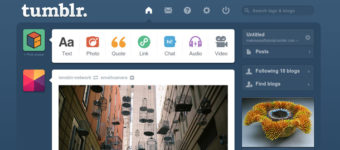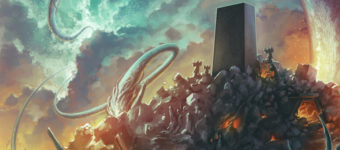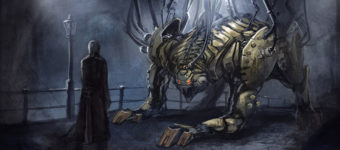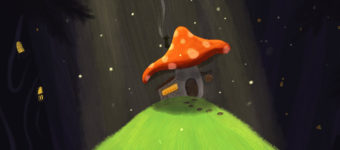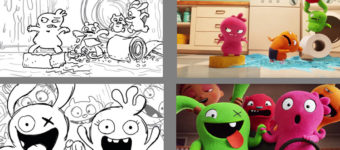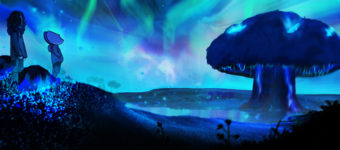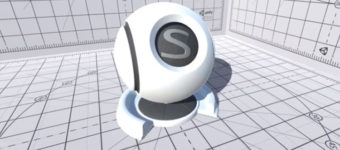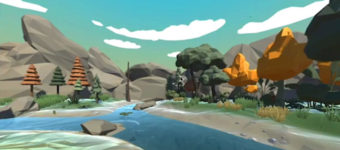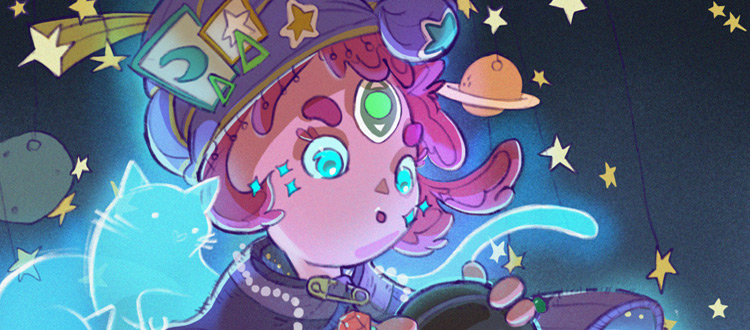
ArtCenter Alum Nicholas Foong Shares Tips Working As A Pro Concept Designer
Born and raised in Singapore, Nicholas Foong is a creative concept artist with a focus on games and entertainment. He currently works in the theme park industry but has experience with a variety of creative artistic projects as a concept designer & illustrator.
He is also a graduate of ArtCenter which is one of the biggest schools in the US for concept design students.
In this interview he shares his experience working as a professional artist along with advice for anyone interested in the concept design field.
How did you first get into art and what encouraged you to chase art as a career?
I grew up like most others on a healthy dose of movies and videogames. I was always drawn to the storytelling part of it and doodling was simply the most natural way for me to tell my own stories, especially as a kid.
That being said, consciously deciding to make a career out of art is an entirely different thing from loving to draw as a kid.
Turning my childhood hobby into a career felt like something I fell into instead of actively pursued.
I didn’t really know what I wanted to do out of secondary school and remembered applying for things like sound design, graphic design, interior design, even chemical engineering(I was pretty good at chemistry!).
It just so happened that game design was the course I got into and drawing happened to be one of the many classes for that major. Fast forward a couple years and an art degree from ArtCenter and here I am.
What was your experience like studying at ArtCenter? What do you feel was the biggest valuable impact from attending college for concept art?
I felt like ArtCenter was a great place for me to figure out what kind of an “art person” I was.
The biggest difference I think between going to a trade school for concept art versus an art college was the range of things I got to try and people I got to meet.
Just being around people from other majors like product design, film, graphic design etc inherently influenced the kind of work I ended up creating.
Surrounding yourself with only like-minded designers can sometimes be a double edged sword. It’s important to be aware of just how much exists beyond the things we see in front of us daily.
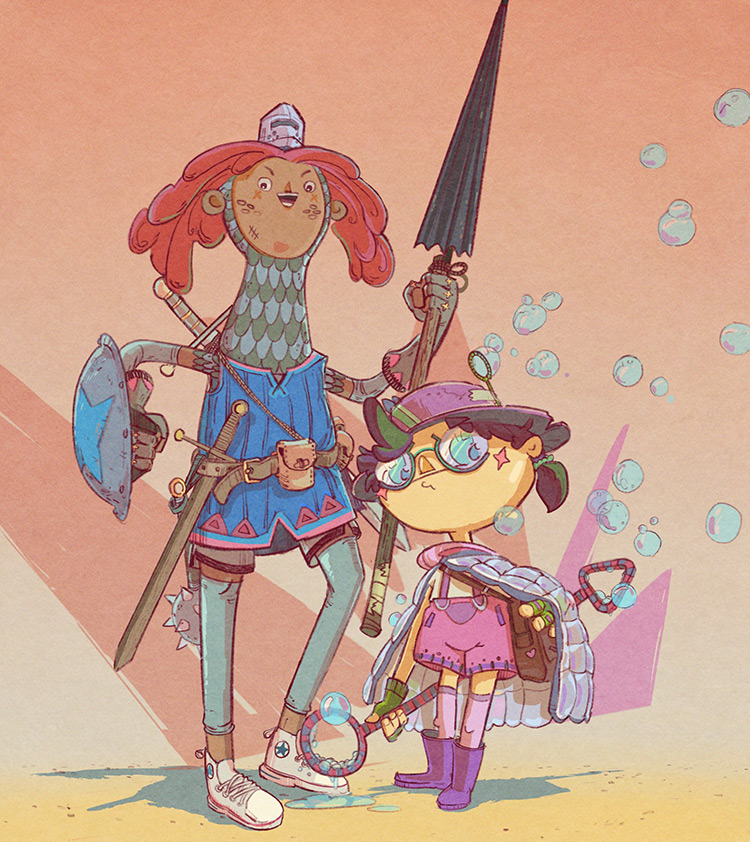
How do you feel your background living in Singapore has affected your creativity, artistic expression, or just your artistic path in general?
Because I grew up in Singapore I was fortunate enough to be able to be exposed to both eastern and western media from a young age.
And not just the good stuff either but also the cheesy bad stuff that you probably won’t like unless you grew up with.
I’m sure that has left some kind of mark on my artistic sensibilities in ways I don’t even know.
On the other hand, I do sometimes feel like I have a bit of an outsider’s perspective on everything.
When entering the concept art space many artists say to specialize, others say to generalize between characters/props/etc. Which do you think is the best move for someone just starting out and why?
Practically speaking, focusing on getting really good at one thing is probably the better bet for landing yourself a job. Especially for an artist just starting out.
From my experience, most companies generally hire people to do the thing their hired for and not a bunch of different things.
That being said, being able to do a little bit of everything at least competently in the long run is only going to make you a stronger more versatile designer I think.
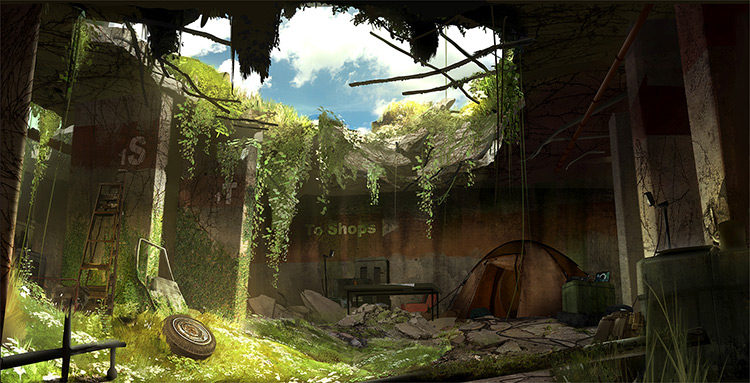
What are some of the tools and programs you use the most on a day to day basis? Can you walk us through a typical day of work for you?
Photoshop is the bread and butter for any concept artist.
On the 3D side, Modo is currently my go to for all my block ins and renders.
I like to sculpt in ZBrush in my personal time but that’s more for 3D printing rather than ideation/illustration purposes.
I currently work at a theme park design studio where a typical day would highly depend on the current phase of a project I’m on.
I’d say most of our days are spread between sketching, b/w rendering and 3D modelling. Illustrations are generally mostly only needed at the end of phases which happens sometimes every few weeks or months even.
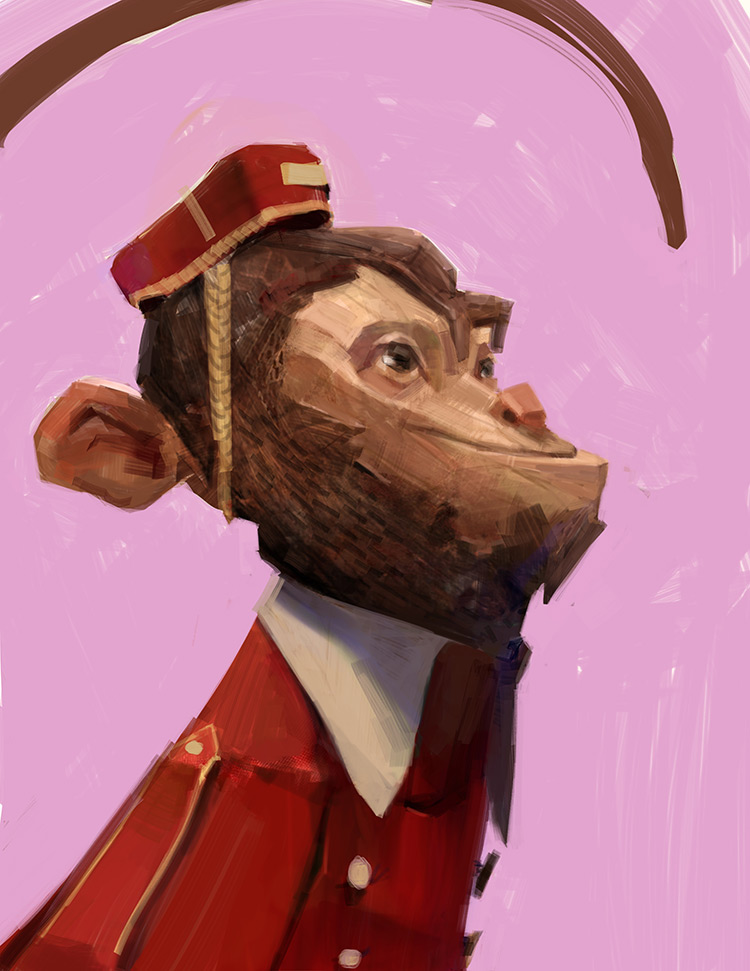
How important is drawing from life vs drawing from imagination for this type of work?
I’d say they are both generally pretty important.
Drawing from imagination makes it easier for you to get the stuff in your head out onto a page and drawing from life helps make them feel believable and relatable.
They kind of go hand in hand in my opinion. Haha if you haven’t noticed by now, my answer to most either or questions are to do both!
Concept art seems to be moving towards a lot of 3D work nowadays too. Is it important for artists to learn both 2D & 3D work, or is it still possible to land a job specializing in just one area?
I personally believe that you’ll always be able to find a job as long as you have something valuable to bring to the table.
I know plenty of designers who only works in 2D. That being said having at least a basic understanding of working in 3D is only going to help your workflow.
I think it’s important to remember that ultimately regardless of whether its 2D or 3D, it’s all just different means to the same end, which is visualizing cool ideas.
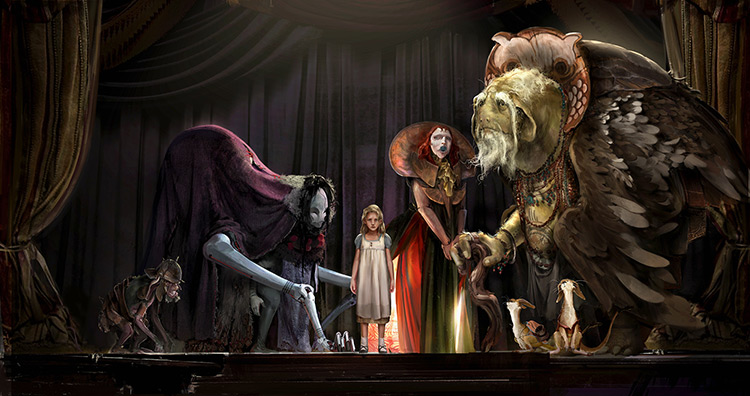
When you’re starting a new project and brainstorming ideas, where do you get those initial ideas from?
Everyone has their own favored method of brainstorming.
For some it is music or text, for others it could be discussing out loud with other people or new experiences.
I know mine’s pretty boring, I personally respond well to visual imagery. I used to have a huge folder of random images I found off the web that I would just scroll through.
In a way those images are just reminders of certain emotional responses stored away that I could use whenever I wanted. These days I just use Instagram.
To me how you find your ideas aren’t really that important.
I think what’s more important is understanding the concept of a hierarchy of ideas. Clarity of intent is super important to me as a designer.
A lot of times we tend to have too many ideas for a project. The next step is to define what the main idea is. That idea should be 90% of your influence; the other 15 ideas should only have a 10% impact.
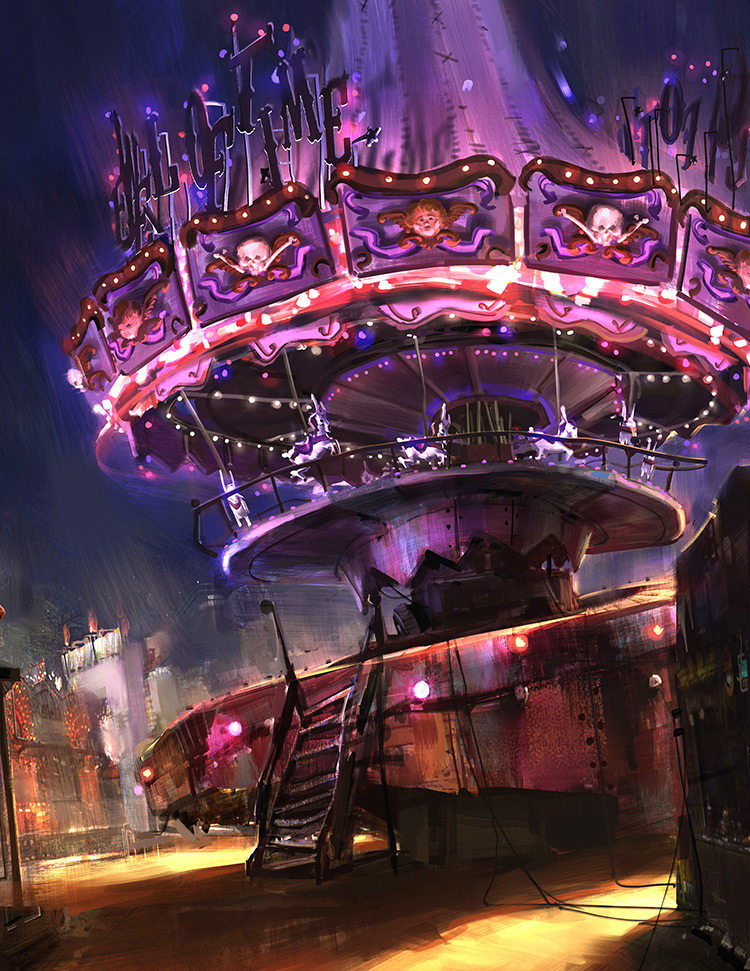
In your experience, how important would you say it is to network & build relationships with other artists?
Building relationships is definitely helpful within this industry. You tend to find out about work opportunities early either through friends or colleagues you’ve met along the way.
Also having someone pass your work on to an art director is going to be a huge advantage compared to applying for work through job postings online just cause of the volume of applications studios tend to receive.
Although sometimes I get work from the generic application sheets on studio websites too even though I don’t expect it.
Can you share any final advice for other aspiring concept artists out there?
Always remember the feeling of drawing as a kid.


